
Efficiently load/unload trucks with expandable conveyor solutions that reach directly into trailers, reducing labor costs and improving throughout.

Achieve 99.9% accuracy rates with high-speed sortation systems designed for high-volume operations processing 10,000+ items hourly.

Purpose-built solutions addressing your facility’s unique requirements while seemlessly integrating with existing warehouse management systems.

We offer an extensive range of conveyor systems designed to meet diverse operational needs to keep material flowing through your facility:
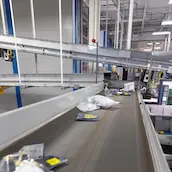
Ideal for transporting items of various sizes and weights.
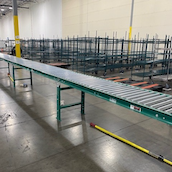
Cost-effective solutions utilizing gravity for movement.
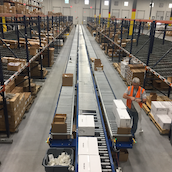
Suitable for heavy-duty applications requiring powered rollers.

Adaptable systems that can be configured to different layouts and loading/unloading operations.
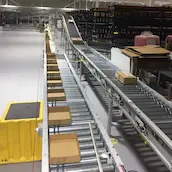
Energy-efficient systems with individual motorized rollers.

Robust systems for handling heavy loads.
Each system is customizable to fit your specific warehouse requirements.
We design and implement innovative sortation conveyor systems engineered to handle high-volume sorting with precision. These systems are designed to integrate seamlessly into your existing operations, enhancing throughput and accuracy.
High-speed sortation conveyor (up to 500 items/min) using mini cross belts for precise sorting of mixed shapes and sizes — ideal for e-commerce, order fulfillment, and shipping operations.


High-throughput tilt tray sortation system that uses gravity-assisted trays to divert items — efficient for small parcels and varying item sizes in fast-moving environments.
High-capacity sortation conveyor using sliding shoes to gently divert standardized packages like boxes, totes, and bins — suitable for distribution centers and parcel handling.


Versatile tray-based sortation system with a full-width push bar for handling irregularly shaped, light, and heavy items — delivers high throughput at a lower cost than cross belt systems.
Flexible and quiet sortation conveyor using pop-up wheels between narrow belts — ideal for mid-size, mid-weight products in medium-to-high throughput applications. Rates up to 225 items/min.


Compact and cost-effective sortation solution using pivoting wheels to divert up to 90 items/min — best for polybags, totes, and cartons of consistent size.
Modular belt sorter with integrated rollers for low-to-medium speed sorting, aligning, and diverting — space-saving and ideal for lightweight, flat-bottom products in packaging lines. These sorters can handle a wide variety of product types including poly bags and small light items.

We offer accumulation conveyor systems for buffering and controlling the flow of products through your facility. They allow items to be temporarily held without pressure buildup, ensuring smoother transitions between various stages of the material handling process.
Types of Accumulation Conveyors We Offer:
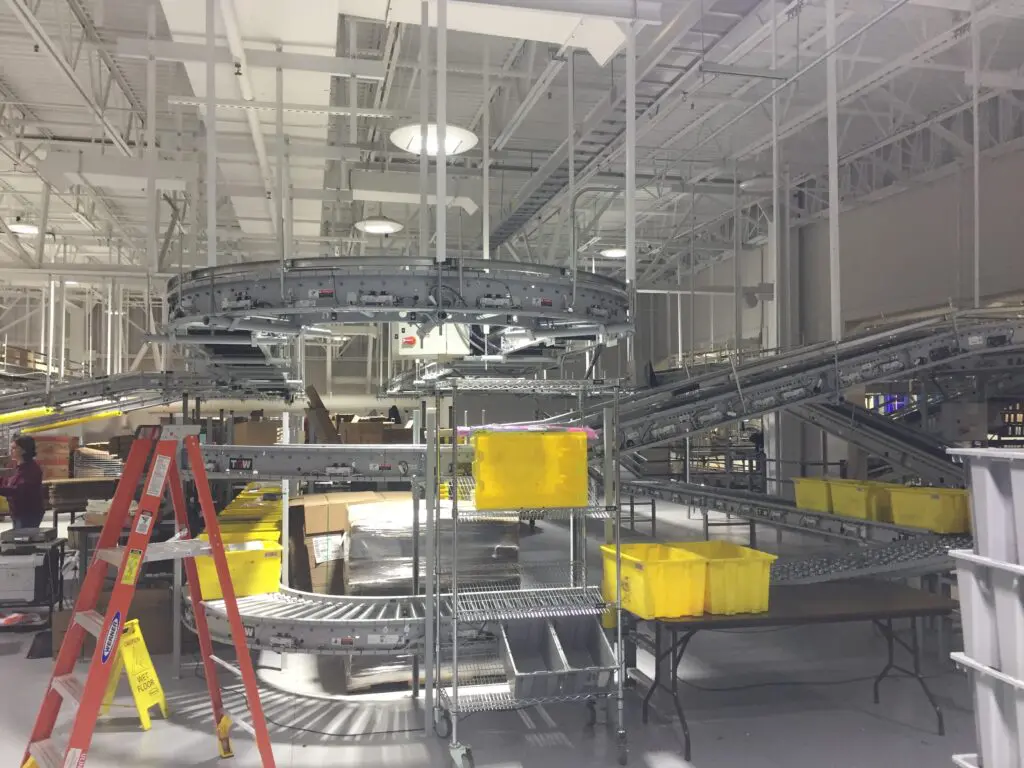
Prevent product contact during accumulation using sensor-controlled zones. Ideal for fragile or high-value goods and long lengths of accumulation because there is no back pressure. ZPA systems enhance safety and minimize damage risk.
Products accumulate in specific zones powered by Motorized Drive Rollers (MDR), allowing for energy efficiency and flexible control of product flow.
Allow light contact between items to increase throughput while maintaining product flow control. Perfect for applications where gentle pressure is acceptable.
Engineered for heavy loads, these systems manage palletized products with precision and prevent unnecessary movement or jamming.

Prevent product contact during accumulation using sensor-controlled zones. Ideal for fragile or high-value goods and long lengths of accumulation because there is no back pressure. ZPA systems enhance safety and minimize damage risk.

Allow light contact between items to increase throughput while maintaining product flow control. Perfect for applications where gentle pressure is acceptable.

Products accumulate in specific zones powered by Motorized Drive Rollers (MDR), allowing for energy efficiency and flexible control of product flow.

Engineered for heavy loads, these systems manage palletized products with precision and prevent unnecessary movement or jamming.






Headquartered in Dallas, Precision Warehouse Design has sales engineers in major logistic & fulfillment hubs around the country. We are leaders in material handling for projects all over the United States and Canada. Book a virtual quote or onsite meeting at your manufacturing facility, warehouse or fulfillment center.